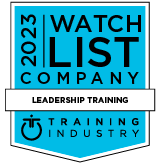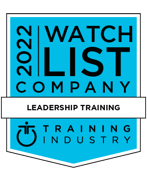The People-First Revolution: Why Workplaces Must Lead

Contents
In today’s complex and ever-evolving world, business leaders can no longer afford to sit on the sidelines when it comes to societal change. Workplaces are no longer just places of employment—they are platforms for progress, where the values of trust, fairness, and human connection must be intentionally cultivated.
The People-First Revolution represents a profound shift in leadership philosophy—one that prioritizes the well-being, dignity, and growth of employees. This movement isn’t just about doing the right thing; it’s about building a resilient, high-performing culture where people thrive—and in turn, so does the business.
Governments are struggling to put people first. The best organizations aren’t waiting around—they’re leading the charge.
The Shift: Why Workplaces Can’t Stay Neutral
The old notion that business should remain separate from social issues is no longer viable. Employees, customers, and investors are demanding that organizations take clear, values-driven action.
The 2023 Edelman Trust Barometer reveals that 62% of people trust businesses more than the government—an 11-point difference. Trust in leadership is now a deciding factor in employee engagement, retention, and performance.
With this trust comes responsibility. Companies must recognize that how they lead internally directly impacts their external reputation and long-term success.
At the core of effective leadership is trust—and trust isn’t given; it’s earned through intentional, people-first leadership.
The CARE Equation, as outlined in CARE to Win by Alex Draper, offers a framework for building that trust:
- Clarity: Aligning people with a shared mission through transparency and purpose.
- Autonomy: Empowering employees to take ownership of their work and ensuring every voice is heard.
- Relationships: Fostering deep, meaningful connections that drive collaboration and innovation.
- Equity: Creating a fair, adaptable workplace where every individual has the opportunity to thrive.
This isn’t just theory—it’s a proven approach to building cultures that attract, retain, and elevate top talent.
People-First Leadership: An Intentional Act
Creating a workplace where people thrive doesn’t happen by accident—it requires intentional leadership. Organizations that actively embrace a people-first culture gain a powerful competitive advantage.
Here’s how leading companies are making this shift:
- Fair Compensation – Ensuring wages reflect the cost of living and respect the dignity of work.
- Psychological Safety – Building workplaces where employees feel safe to share ideas, challenge norms, and contribute fully. Google’s Project Aristotle found that psychological safety is the number one predictor of high-performing teams.
- Prioritizing Mental Health – Acknowledging that well-being is a business imperative, not a perk.
This isn’t just about creating a “nice” workplace—it’s about driving better business outcomes. Companies that put their people first outperform their competitors.
Companies Leading the People-First Revolution
Some organizations are already proving that trust and culture aren’t just soft skills—they’re hard business strategy.
- Costco – Maintains industry-leading wages and unwavering DEI commitments, despite external pressures.
- Patagonia – Restructured ownership to ensure profits go toward fighting climate change.
- Apple – Continues investing in DEI and employee well-being, recognizing its impact on innovation.
- Deutsche Bank – Affirmed its commitment to DEI, ensuring long-term cultural alignment.
- AltFinance – Continues investing in Black student career development despite corporate diversity cutbacks.
These companies aren’t just reacting to trends—they’re shaping the future by intentionally designing cultures where people and businesses thrive together.
Final Thoughts: Lead Like the World Is Watching (Because It Is)
The 2025 Edelman Trust Barometer signals a warning: trust in business leaders is declining, fueled by economic uncertainty and unmet expectations. Leaders have a choice—step up and earn that trust or risk irrelevance.
- Foster Psychological Safety – Make work a place where employees feel valued and heard.
- Put People First – Tailor leadership approaches to meet the unique needs of your team.
- Build Trust Through Transparency – Align words with actions and communicate openly.
When organizations invest in their people, they don’t just create a better workplace—they build stronger businesses, more resilient economies, and a better world.
The People-First Revolution isn’t coming. It’s already here. The question is—are you leading it?
References & Data
- 2023 Edelman Trust Barometer – Trust in businesses surpasses government by 11 points.
- 2024 Edelman Trust Barometer – Workplace polarization is growing, making trust even more vital.
- Gallup Research – Trust in leadership is one of the biggest drivers of employee engagement.
- Google’s Project Aristotle – Psychological safety is the top predictor of high-performing teams.
- Patagonia, Costco, and AltFinance case studies – Demonstrating that putting people first leads to long-term success.
Read On
The Language of Leadership: How Words Shape Trust and Performance
The War on Workplace Culture: Why Putting People First Should Be Our Top Priority
Why Leadership Development Programs Fail—And How DX Learning Makes a Difference
Insights

Subscribe to Our Monthly Newsletter!
For managers and talent professionals who truly believe in putting people first, the CARE to Win blog is your gateway to the latest insights on human-centric leadership. Join us as we champion the people first movement.
Need some time apart? Are we emailing you too often? Just give us your feedback, and we promise we’ll respond. We really do care. And if it’s still too much, just unsubscribe. It’s cool.
.jpg) Alex Draper
Alex Draper


